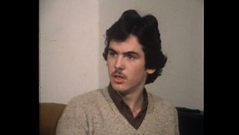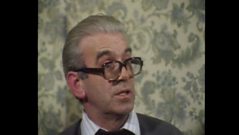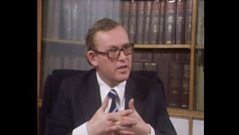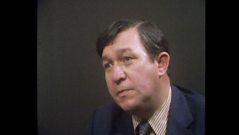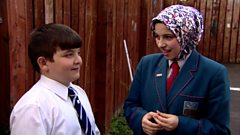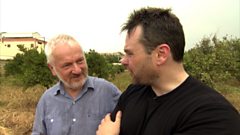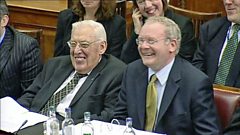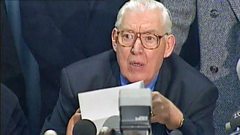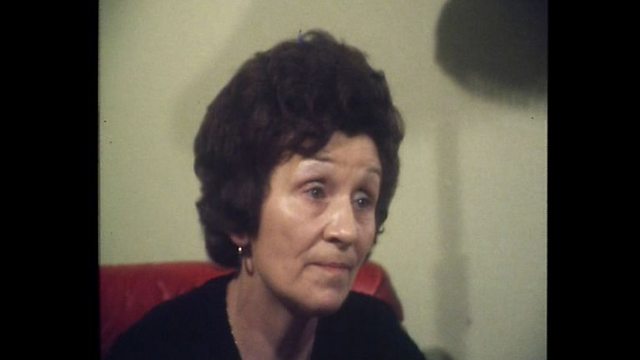
PIRA bomb England
Provisional Irish Republican Army bombs explode in Guildford, Woolwich and Birmingham in 1974. Gerry Conlon is arrested and his father Giuseppe goes to his aid.
Gavin Esler’s report begins with descriptions of the Guildford and Woolwich bombs of 1974. The Provisional Irish Republican Army (PIRA) were responsible, “The troubles in Northern Ireland had spilled over into the English Home Counties in the most bloody fashion”. Esler states that the bomb exploded just after 7pm. Other sources say it exploded at 8.30. It is probably more accurate to state that the bomb at the Horse & Groom exploded at 8.55pm and the bomb at the Seven Stars at 9.35pm.
After subsequent PIRA attacks that year – including one on Birmingham city centre – there was considerable anti-Irish feeling.
In the early hours of November the 30th 1974 Gerry Conlon (Giuseppe Conlon’s son) was arrested at the family home in Belfast. He and three others were charged and later convicted of carrying out the Guildford and Woolwich pub bombings.
Giuseppe Conlon decided to go to England to support his son. This was a worry for his wife, Sarah Conlon, who describes how he almost never left the house.
Giuseppe’s doctor, Joe Hendron, states that given his poor health Giuseppe would be quite breathless with less than moderate exertion. Joe Hendron was incredulous at the news of Giuseppe’s arrest for the Guildford and Woolwich pub bombings.
When he arrived in London Giuseppe tried unsuccessfully to contact his brother-in-law, Hugh Maguire. He then made his way to the home of his sister Annie and her husband Patrick at Third Avenue, Harlesden.
CONTEXT
On 5 October 1974 the Provisional Irish Republican Army (PIRA) targeted Guildford, Surrey, because it was situated close to a number of garrison towns. The PIRA planted two six-pound gelignite bombs in two pubs. The first exploded just before 9.00pm in the Horse and Groom, destroying the front of the building and shattering the windows of neighbouring shops.
It killed Paul Craig, a plasterer (22 years old); two members of the Scots Guards, William Forsyth (18) and John Hunter (17); and two members of the Women’s Royal Army Corps, Caroline Jean Slater (18) and Ann Ray Hamilton (19). A further sixty-five persons were wounded.
After the first explosion, other public houses were evacuated, including the Seven Stars where the second bomb exploded at approximately 9.35 p.m. without causing any serious injuries.
On November 7 1974 Gunner Richard Dunne, a soldier (42) and Alan Horsley, a sales clerk (20) were killed when a PIRA bomb exploded in the King’s Arms in Woolwich. Twenty-six people, including five soldiers, were injured.
In December 1974 the police arrested three men and a woman: Gerry Conlon, Paul Hill, Patrick Armstrong and Carole Richardson. In October 1975 these four were convicted of the Guildford and Woolwich bombings and given life sentences. The group was known as the Guildford Four.
On 4 March 1976 the Maguire Seven were convicted of making the explosives used in these bombings. The Maguire Seven were: - Anne Maguire, Patrick Maguire (Anne’s husband), Patrick Maguire (son of Anne and Patrick), Vincent Maguire (son of Anne and Patrick), Sean Smyth (brother of Anne), Patrick O’Neill (family friend) and Giuseppe Conlon (brother-in-law of Anne Maguire and father of Gerry Conlon).
Over the years, the cases of the Guildford Four and the Maguire Seven came under increasing legal scrutiny and the range of those seeking a review of the convictions extended widely. On 17 October 1989 it was announced that corruption proceedings would be taken against the police involved in the conviction of the Guildford Four. Two days later, with the exception of Paul Hill, those convicted for the bombings were released. This followed an announcement by the Director of Public Prosecutions that it would be wrong for the Crown ‘to seek to sustain’ the convictions of 1975 on the basis of confessions that they had later retracted. The Court of Appeal had decided that the DPP in 1975 had suppressed scientific evidence which conflicted with the confessions. Paul Hill remained in custody because he was implicated in a case that had not yet been resolved. His conviction was eventually quashed in April 1994.
On 26 June 1991 the Court of Appeal overturned the sentences on the Maguire Seven. All of them had completed their sentences. Afterwards many criticised the court for dismissing most of the grounds of appeal and had simply concluded that the hands of the convicted could have been innocently contaminated with nitro-glycerine.
Duration:
This clip is from
More clips from Giuseppe Conlon and the Bomb Factory
-
![]()
Patrick Maguire recalls his arrest
Duration: 01:43
-
![]()
Giuseppe Conlon is arrested
Duration: 02:06
-
![]()
Flaws in forensic evidence
Duration: 05:38
-
![]()
Giuseppe Conlon is an unlikely terrorist
Duration: 03:20
More clips from Spotlight
-
![]()
Hamza and Salam's escape—29/09/2015
Duration: 01:59
-
![]()
A Long Way from Clare to Here—29/09/2015
Duration: 02:25
-
![]()
Paisley and the Good Friday Agreement—Paisley and the Pretender
Duration: 02:13

